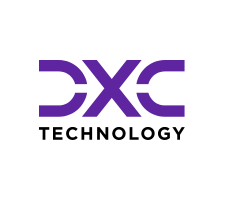As the NHS continues to face significant challenges, including insufficient funding, staff shortages and evolving healthcare needs, digital innovation is poised to transform the healthcare industry in meaningful ways.
This includes the emergence of AI as a critical tool that can help healthcare organisations become more personalised, proactive and accessible. However, to deliver AI’s full potential, we must quickly scale cutting-edge solutions beyond pilot projects and isolated use cases. What’s needed is a system-wide approach that integrates successful AI tools into routine NHS practice.
Sponsored and written by
Here’s an example of a use case in which AI is making a tangible difference through its widespread application.
A better way to manage Parkinson’s disease
Parkinson’s disease is a progressive neurodegenerative disorder that affects a patient’s whole body and is often characterised by tremors, stiffness and rigidity, and slowness of movement. As a chronic progressive condition, its symptoms can be difficult to manage without monitoring day-to-day fluctuations in motor symptoms.
Many standard treatment protocols require patients to make periodic visits to neurologists, where symptoms are assessed in brief, in-clinic observations and treatments are adjusted accordingly. The problem with this traditional model is that it fails to capture the daily variations in symptoms, leaving doctors with insufficient data to accurately manage medications and all acute changes of conditions.
This is where AI-driven digital tools can help. By offering continuous monitoring and real-time insights, AI can bridge the gap between appointments, giving both clinicians and patients the data needed to make more informed decisions.
An AI-powered app transforms care
Working with neurologists at a hospital in Australia, a team from DXC Technology and SAP developed a mobile application for PD patients and clinicians that can collect hand-drawn spirals and associated metrics from patients outside of their clinician appointments.
Using this “Tele-Parkinson” application, patients can regularly record their symptoms through simple home-based tasks such as drawing a spiral and entering simple data such as blood pressure.
These data points, collected multiple times a day, are analysed by AI algorithms which track patterns and fluctuations to detect subtle changes in motor function and derive symptom progression. The platform then provides clinicians with real-time insights into patients’ “on” and “off” states – periods when medication is or isn’t working effectively.
With this level of insight, clinicians can make more informed adjustments to treatment plans in real-time, and patients become more aware of their symptoms.
Empowering patients and clinicians
Tools like Tele-Parkinson offer patients greater control over their care, enabling them to track symptoms daily and communicate with their care team in real-time. This increased engagement can improve self-awareness and lead to more personalised treatment plans.
For clinicians, AI offers a continuous stream of accurate, actionable data that enhances decision-making. Rather than relying on infrequent in-person assessments, neurologists can use AI-generated insights to fine-tune treatments remotely, improving outcomes and reducing the need for frequent appointments. “This is an essential evolution in the management of Parkinson’s disease,” said associate professor Scott Whyte, a neurologist involved in the project.
From pilot projects to system-wide success
To maximise the impact of innovations like Tele-Parkinson, the NHS should embrace a systematic approach to scaling successful digital innovations. Too often, solutions remain siloed within individual trusts, preventing their widespread adoption. To overcome these barriers, and maximise the benefit of digital innovation, DXC believes the following principles are key:
- Leverage existing solutions: Trusts and integrated care systems that have already deployed successful AI tools should be seen as pioneers, and their solutions should be scaled and adapted across the health system.
- Work closely with clinicians: Collaboration between technology leaders and clinicians is essential to ensure AI tools address pressing healthcare challenges.
- Lead with practical use cases: AI should be applied to specific, real-world problems, such as Parkinson’s disease management.
- Build confidence through success: Scaling should begin with proven use cases in which AI has already demonstrated value before extending to other conditions and challenges.
Making the future a reality
AI’s success in Parkinson’s management highlights digital solutions’ broader potential across the NHS. AI-powered tools can reduce the burden on overstretched healthcare services while improving patient outcomes across numerous chronic conditions.
As the NHS continues to evolve, digital healthcare solutions like Tele-Parkinson can play an increasingly important role in transforming care pathways. However, scaling AI isn’t just about technology – it’s about building confidence in digital solutions that have demonstrated value and integrating them into the fabric of NHS care.
By adopting a collaborative approach and learning from early successes, the NHS can harness AI’s full potential to improve patient care, lighten the workload for healthcare staff, and deliver better outcomes for patients across the UK.
Partnering to shape the future of digital healthcare
DXC Technology’s vision extends beyond individual solutions to a holistic approach to healthcare challenges, where digital tools are seamlessly integrated into routine care. As the company continues to develop and refine digital innovations, its goal is to work closely with the NHS and partners to jointly leverage digital healthcare’s potential to deliver smarter, more efficient and more personalised care for all.
For decades, DXC’s engineering, consulting and technology experts have helped healthcare organisations operate more efficiently, modernise their systems and processes, and improve the patient experience to deliver more effective care using the power of AI, cloud and other technologies.




























